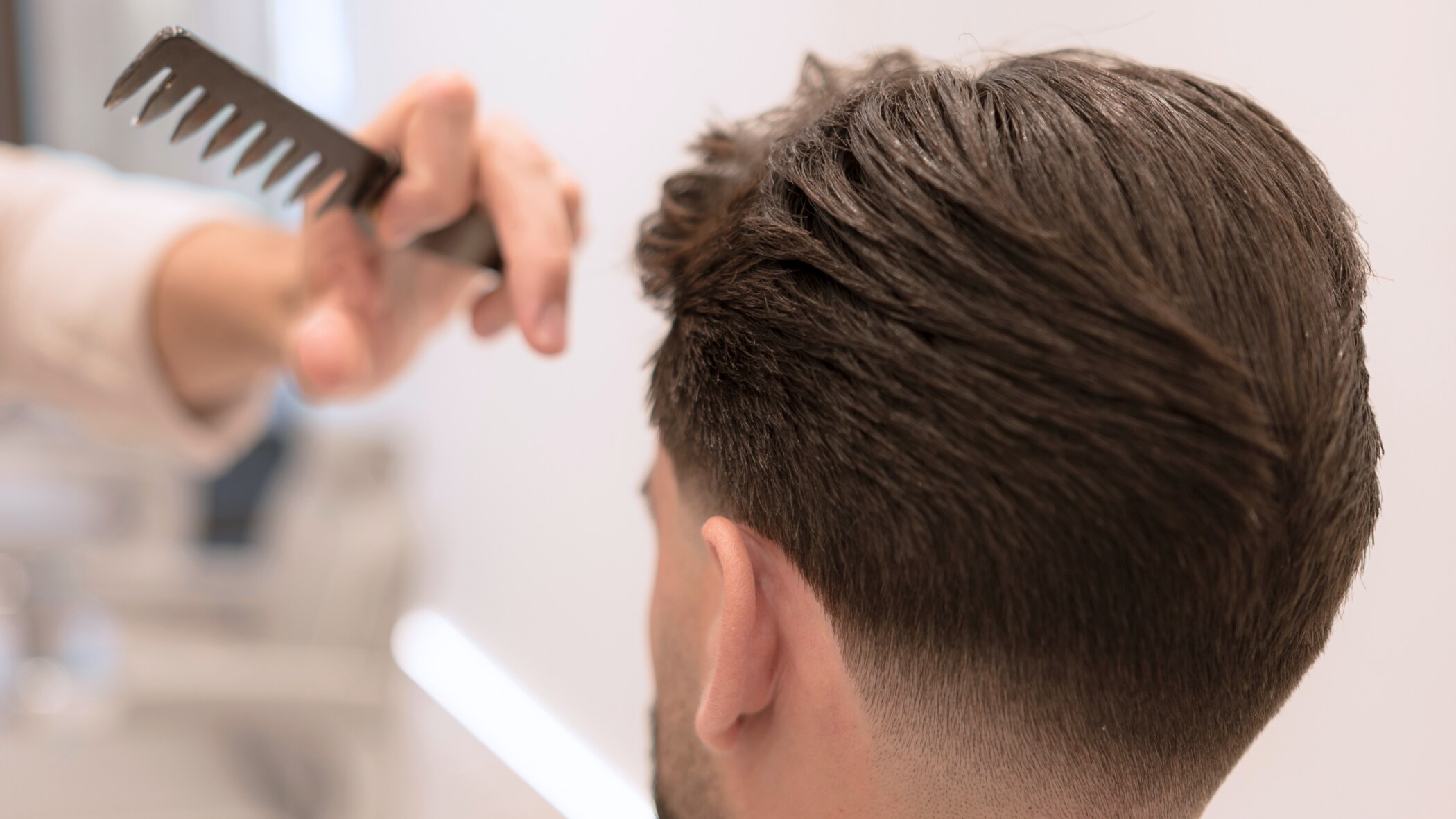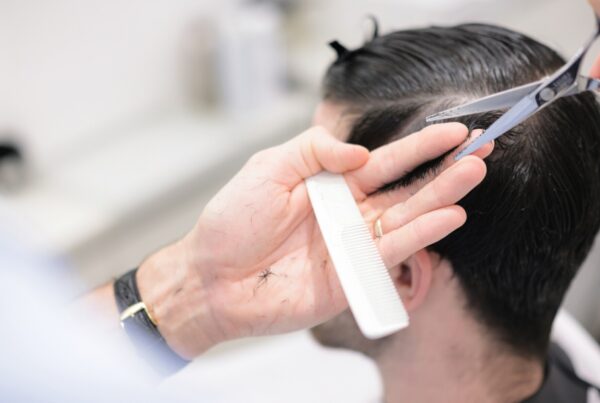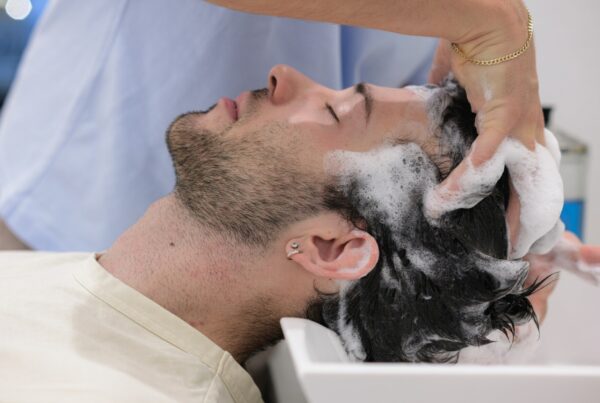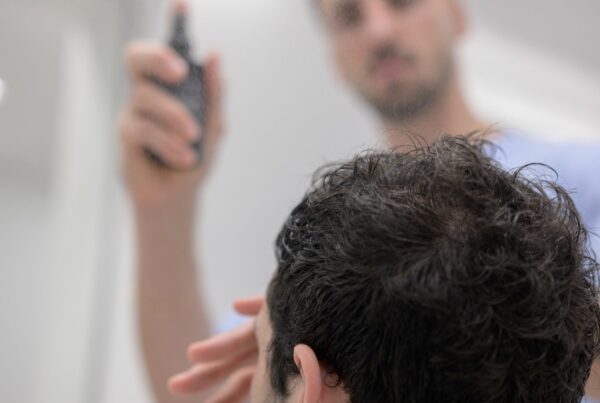Hair loss is a common issue among men, and while genetics play a major role, there are several strategies that can be adopted to slow down the process and promote healthy hair growth. The key to effectively addressing hair loss is to fully understand the causes behind thinning, so that the most appropriate and personalized treatment can be selected for each individual case.
Index

Causes of hair loss
The main cause of hair loss in men is androgenetic alopecia, or male pattern baldness, a hereditary condition involving genetics and the hormone dihydrotestosterone (DHT). This hormone causes the gradual narrowing of hair follicles, leading to weakened hair and shorter growth cycles. In practice, this phenomenon results in a receding hairline, bald patches on the top of the scalp, or thinning that follows a “horseshoe” pattern.
In addition to genetic predisposition, several other factors can contribute to hair loss, including:
- Medical conditions: Thyroid disorders, autoimmune diseases like alopecia areata, scalp infections, and aggressive treatments such as chemotherapy.
- Nutritional deficiencies: A lack of essential nutrients like iron, B vitamins, vitamin D, and proteins can negatively affect hair health.
- Stress: Chronic stress can interfere with the normal hair growth cycle, causing hair shedding that can be temporary or, in more severe cases, permanent.
Natural methods to prevent hair loss
Before pursuing medical treatments, there are natural methods that can help prevent hair loss and improve scalp health:
- Healthy and balanced diet: A diet rich in proteins, iron, vitamins A, D, E, and B vitamins is essential for the health of hair follicles and hair growth. If hair loss is related to nutritional deficiencies, correcting the diet can prevent further damage.
- Stress management: Stress can disrupt the natural hair growth cycle. Relaxation techniques like yoga, meditation, and deep breathing are helpful in reducing stress’s impact on hair health.
- Scalp massage: Massaging the scalp stimulates blood circulation, improving nutrient supply to the follicles and encouraging hair growth.
- Gentle hair care: Using a mild shampoo, avoiding excessive use of hot styling tools, and not wearing overly tight hairstyles help maintain healthy hair and prevent breakage.
- Adequate rest: A regular sleep schedule of 7-8 hours is important for balancing hormone levels and promoting healthy hair growth.
Advanced treatments for hair loss
If natural remedies are not enough, there are medical treatments that can be effective in slowing down hair loss and stimulating regrowth:
- Growth factor treatments (PRP): Platelet-rich plasma (PRP) therapy is one of the most advanced techniques. It involves injecting platelet-rich plasma, derived from your own blood, into the scalp. The platelets contain growth factors that stimulate the hair follicles, improving hair density and health. Although studies are ongoing, many people have seen significant improvements with this treatment.
- DHT blockers: Since DHT is one of the main causes of male pattern baldness, several treatments aim to block its effects. Medications like finasteride reduce DHT production, slowing hair loss and, in some cases, stimulating regrowth. These treatments are especially useful for those with mild to moderate hair loss.
Consult an expert for an accurate diagnosis and personalized solutions
Before starting any hair loss treatment, it is essential to consult a qualified expert, such as a dermatologist or a trichologist. A dermatologist is a doctor specializing in skin, hair, and nail health and can identify any scalp issues affecting the hair. A trichologist, on the other hand, is an expert specifically in treating hair and scalp disorders. The cause of hair loss varies from person to person, so it is crucial to consult a professional for an accurate diagnosis and to choose the most suitable treatment for your case.
Our approach at The Makers Club
At The Makers Club, we work closely with dermatologists, trichologists, and pharmacists to provide consultations on the best supplements and treatments to combat hair loss. However, our primary advice is always to consult industry professionals who can thoroughly analyze the cause of thinning. Only an accurate diagnosis will allow you to select the most suitable path for encouraging hair regrowth. Each case is unique, and a personalized treatment plan is essential to achieve optimal results. Consulting an expert will allow you to adopt the solution that best fits your needs, safeguarding your health and improving the effectiveness of the treatment.











